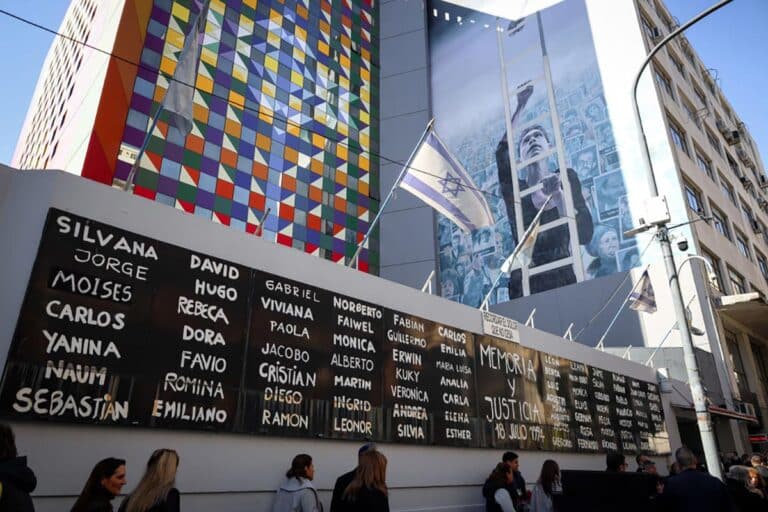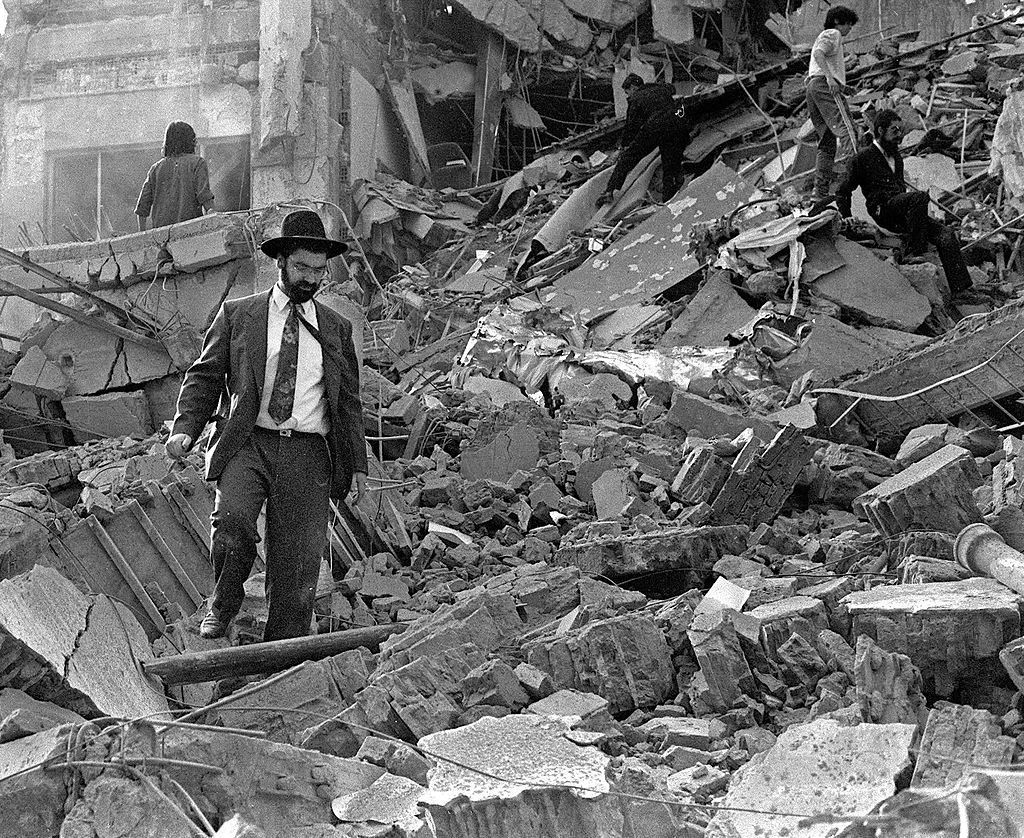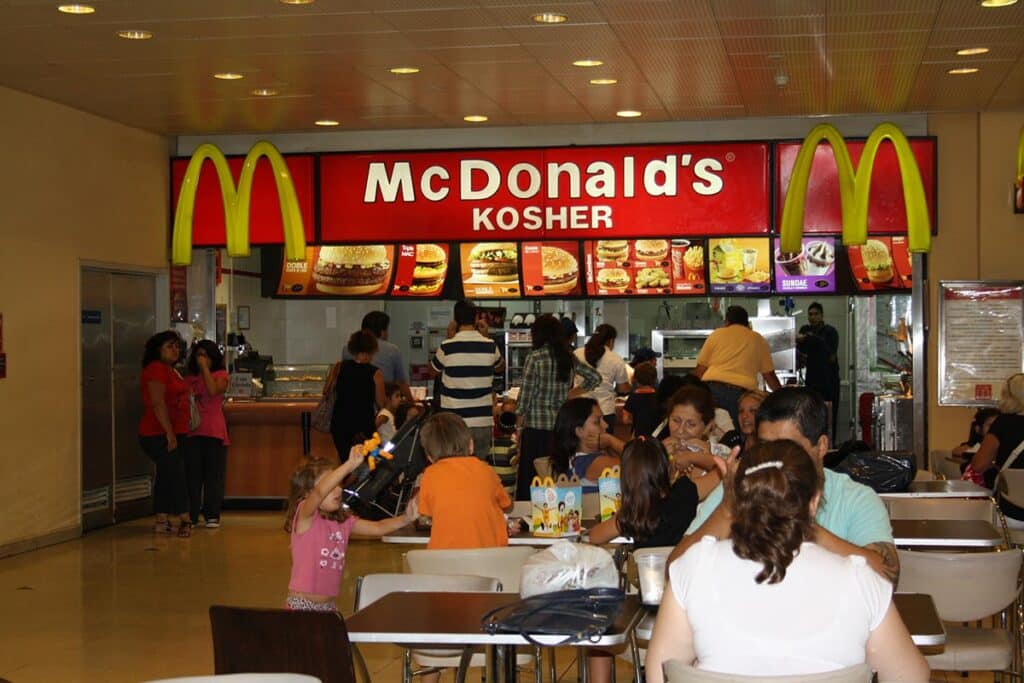
Seven suspected terrorists were arrested by Argentina’s Federal Police Friday after officials discovered they were planning attacks against the Jewish community of Mendoza in western Argentina.
What happened?
Argentinian authorities launched an investigation into a suspected terrorist cell after a Jewish journalist from Mendoza reported that they received threats from the group.
The members of the cell spread anti-Christian and antisemitic messages through Telegram and WhatsApp, including content from terrorist groups like ISIS and the Taliban.
At least two of the suspects mentioned the war against Hamas in their conversations about the planned attacks. Those suspects, who are residents of Mendoza, were trying to recruit more members to the cell.
Police found a large cache of guns, knives, cell phones, computers, game consoles, and extremist Islamist content at the homes of the suspects.
The group was also reportedly planning to attack Christian sites.
7 TERRORISTAS ¡AFUERA!
— Patricia Bullrich (@PatoBullrich) August 16, 2024
Planeaban atentados en Mendoza. En 8 allanamientos la PFA desmanteló una peligrosa organización vinculada a un grupo terrorista radical islámico, identificado tras amenazar a un periodista de la comunidad judía. Esta organización usaba las redes para… pic.twitter.com/f0NMhBxwGA
Argentinian Minister of Security Patricia Bullrich posted a video of the arrests, writing, “We are going to get rid of each and every one of these criminals who try to sow fear among Argentines, and they will pay.”
This isn’t the first time Islamist terrorists have targeted the Argentinian Jewish community.
Argentina’s Jewish community was targeted repeatedly over the years
Hezbollah, Iran, and other Islamist extremists have operated in Argentina and other parts of South America for decades.
During the Lebanese Civil War from 1975-1990, many Lebanese refugees emigrated to South America to escape the violence. Hezbollah used this migration to recruit agents throughout the continent and form terrorist cells.
Iran and Hezbollah have used ties with Venezuela and several criminal organizations to smuggle drugs, weapons, and oil throughout South America to fund their operations in the Middle East.
In 1992, a suicide bomber targeted the Israeli Embassy in the Argentinan capital Buenos Aires, killing 29 and wounding over 240 others.

Just two years later, another terrorist drove a van full of bombs towards the Asociación Mutual Israelita Argentina Jewish community center, killing 85 people and wounding over 300.
While Argentinian and Israeli authorities had blamed Iran and Hezbollah for the attacks and even issued international arrest warrants for suspects in the case, no final ruling was issued until this year, three decades after the attacks.
In 2019, Argentina became the first Latin American country to designate Hezbollah as a terrorist organization.
In April 2024, Argentina’s Federal Court of Criminal Cassation officially ruled that Iran had ordered both the 1992 and the 1994 bombings and that Hezbollah had carried out the two attacks. The court also ruled that government officials had tried to cover up the facts of the case, but the officials in question received sentences that many considered lenient.
In June, the Inter-American Court of Human Rights — an international court formed to judge claims of human rights violations across the Americas — ruled that Argentina had not done enough to prevent the 1994 attack and failed to adequately investigate both the incident and the attempts to cover up the facts of the case.
In January, Argentinian police arrested three people from Syria and Lebanon suspected of planning terrorist attacks during the Pan American Maccabi Games – an international competition of Jewish athletes – that were taking place in Buenos Aires at the time.
In July, Argentina’s new president, Javier Milei, declared Hamas a terrorist organization, the first Latin American state to do so. A week later, he promised to promote a law that would prosecute the suspects in the AMIA bombing case in absentia — meaning that they could be sentenced even if they’re not present.
Milei has expressed interest in converting to Judaism and has sought to align Argentina more closely with the U.S. and Israel.
The Jewish community in Argentina
Argentina is home to South America’s largest Jewish community, with about 171,000 Jews living in the country.
There are dozens of Jewish schools across the country and several Jewish community organizations.

Argentina even has the only kosher McDonalds outside of Israel.
